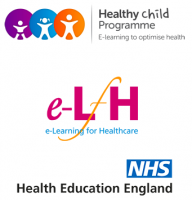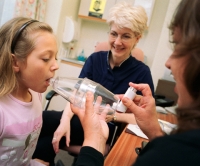Meeting Health Needs of School Age Child course for Medical Doctors



This session will explore the key messages about public health in the context of school health and new models of service delivery. In particular, it will focus on the World Health Organization’s definitions of public health and the study on Health Behaviours in School-aged Children (HSBC).
Learning objectives
By the end of this session you will be able to:
- Summarise information regarding public health and the causes of public health problems in the 21st century
- Summarise issues that are underlined in the Health Behaviours in School-aged Children (HBSC) study by the World Health Organization (WHO)
- Identify the knowledge and skills needed to work together for optimum public health outcomes for children and their families
- Choose the best environment for practice: hospital, clinic, school, classroom, home or wider community
- Evaluate the different methods of communication: face-to-face, email, mobile phone, text and letters to support the child, parents and school
This session uses self assessments that help you check what you have learnt. You do not have to use them and your answers are not seen by anyone else.
Before commencing this session you should read:
- Potter K, Wright J. Integrating the Children’s Public Health
- Workforce. In: Sines D, Fanning A, Potter K et al., eds. Community and Public Health Nursing. 5th edn. London: Wiley Blackwell, 2013:91-112
- Wright J. The School Health Team. Healthy School Child (411-002). DH e-Learning for Healthcare. 2014
- Completed HSC session: The School Health Team (411-002)
Jane Wright is a senior lecturer and course leader for Specialist Community Public Health Nursing at Buckinghamshire New University. She has a background in adult nursing and school nursing in Buckinghamshire. Jane has written a number of books and articles about school nursing practice, is on the editorial board of the British Journal of School Nursing and has been involved with the Department of Health School nurse Implementation Plan.


- Surgery | Common Surgical Conditions | General Sur...
- Posted By eIntegrity Healthcare e-Learning
- Posted Date: 2024-11-14
- Location:Online
- This session will cover the surgical principles associated with a change in bowel habit including definitions, aetiology, assessment and investigation.
- Surgery | Common Surgical Conditions | General Sur...
- Posted By eIntegrity Healthcare e-Learning
- Posted Date: 2024-11-14
- Location:Online
- This session aims to give an overview of the aetiology of abdominal masses and consider how they might present. It will provide a structured approach to diagnosis and a general strategy towards management of these patients.
- Surgery | Common Surgical Conditions | General Sur...
- Posted By eIntegrity Healthcare e-Learning
- Posted Date: 2024-11-14
- Location:Online
- This session outlines an overview of the assessment of a patient presenting with abdominal pain, highlighting the salient points in history taking and examination in order to formulate an appropriate diagnosis and management plan.
- Surgery | Basic Science | Abdominal Viscera Bilia...
- Posted By eIntegrity Healthcare e-Learning
- Posted Date: 2024-11-14
- Location:Online
- This session will enable the student to develop a comprehensive understanding of biliary anatomy essential for the understanding of biliary pathology and surgical procedures to this area.
- Surgery | Basic Science | Autonomic Nervous System...
- Posted By eIntegrity Healthcare e-Learning
- Posted Date: 2024-11-14
- Location:Online
- This session is part of the topic “Homeostasisâ€. It is concerned with the physiology and pharmacology of the neurotransmitters released by autonomic nerves.






